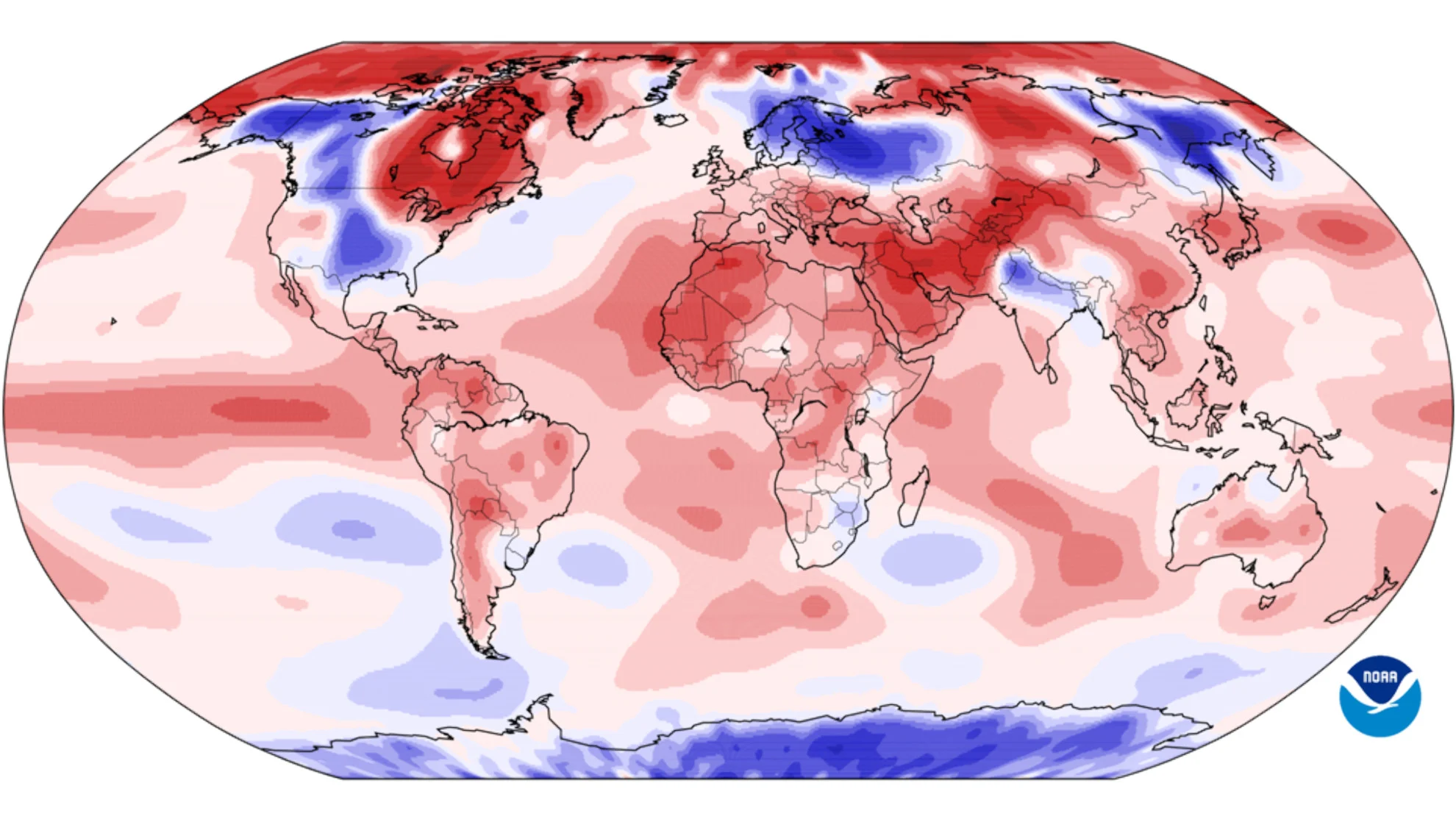Published on Feb. 23, 2024, 6:15 PM
January has already broken temperature records, starting this year off on-course to break the global records set in 2023.
Temperatures soared for the globe in January, as several new records for heat were set during the month.
The World Meteorological Agency, NASA, NOAA, Europe's Copernicus Climate Change Service, and the Japan Meteorological Agency all agree: last month was the hottest month of January ever recorded.
Global average temperature anomalies for each January from 1950 to 2024 are plotted here, with each month compared to the 20th century average of 12.2°C Credit: NOAA
"Temperatures were above average throughout the Arctic, most of northeastern North America, central Russia, southern and western Asia, Africa, South America, eastern and southeastern Asia and Australia. Africa and South America saw their warmest Januarys on record," says NOAA.
Furthermore, according to Copernicus' records, January's global average temperature was 1.66°C warmer than the pre-industrial average for January (from 1851-1900).
"It is the eighth month in a row that is the warmest on record for the respective time of the year. Sea surface temperatures have been record high for ten consecutive months," the WMO stated.
Sea surface temperatures set a record for 2023, but that record has already been broken as of late January and early February 2024. Credit: Climate Reanalyzer
READ MORE: After 2023's astounding new global heat record, 2024 may be even worse
Based on at least NOAA's and Copernicus' records, the past 12 months — February 2023 to January 2024 — was also the hottest 12-month period on record.
